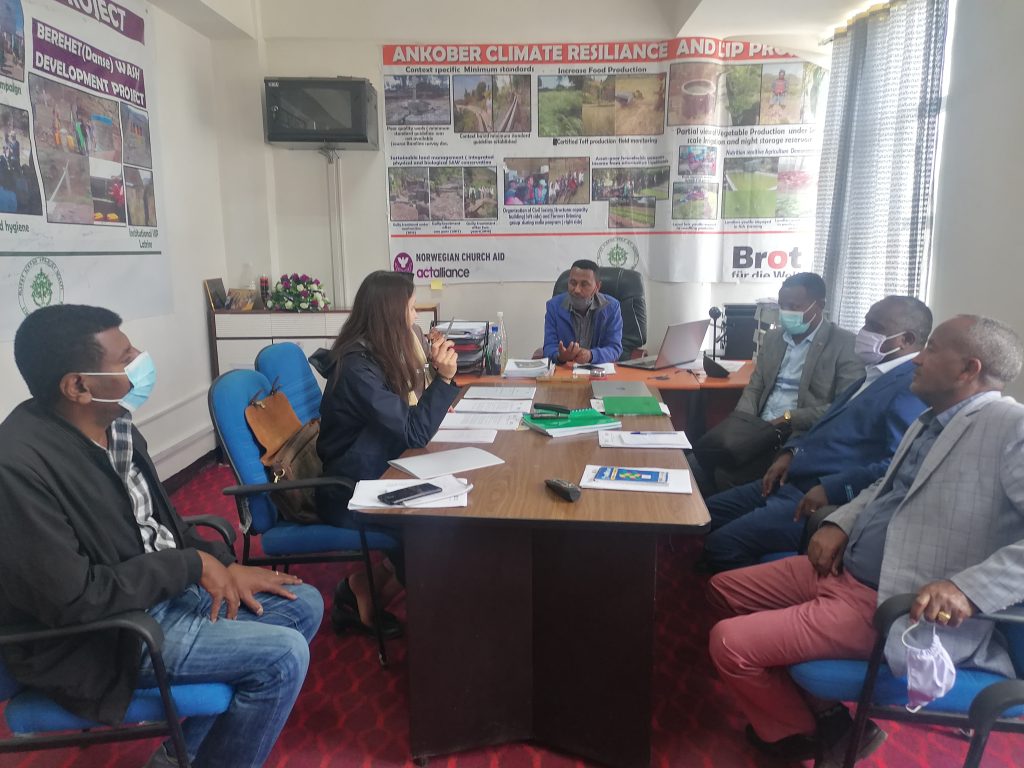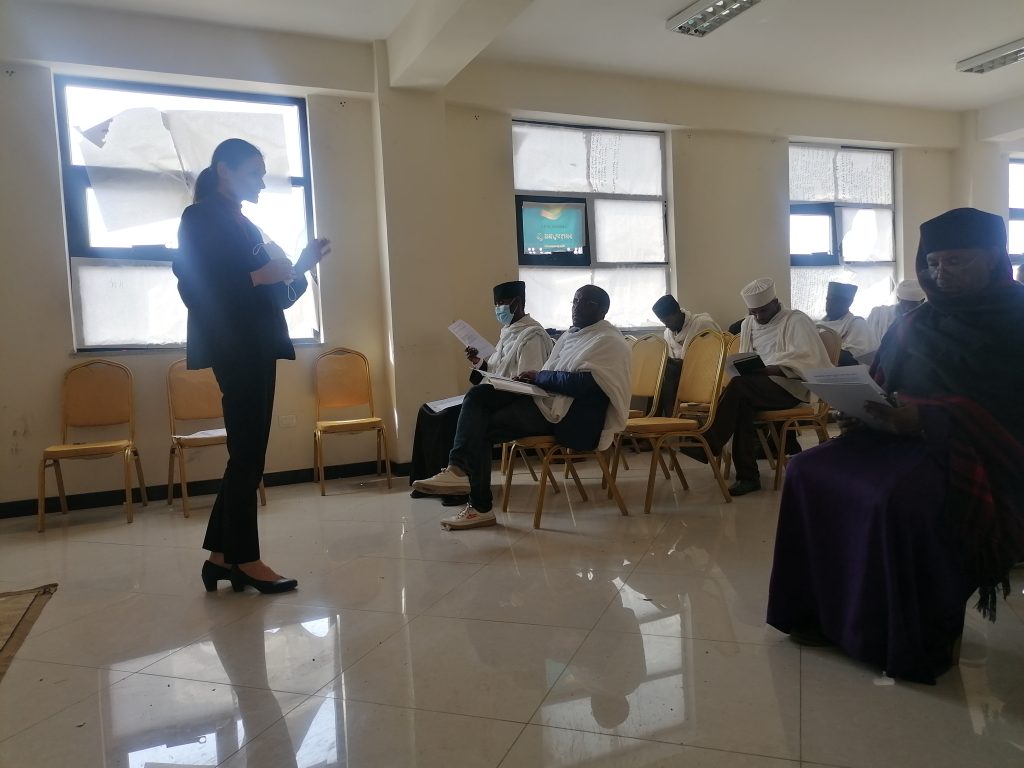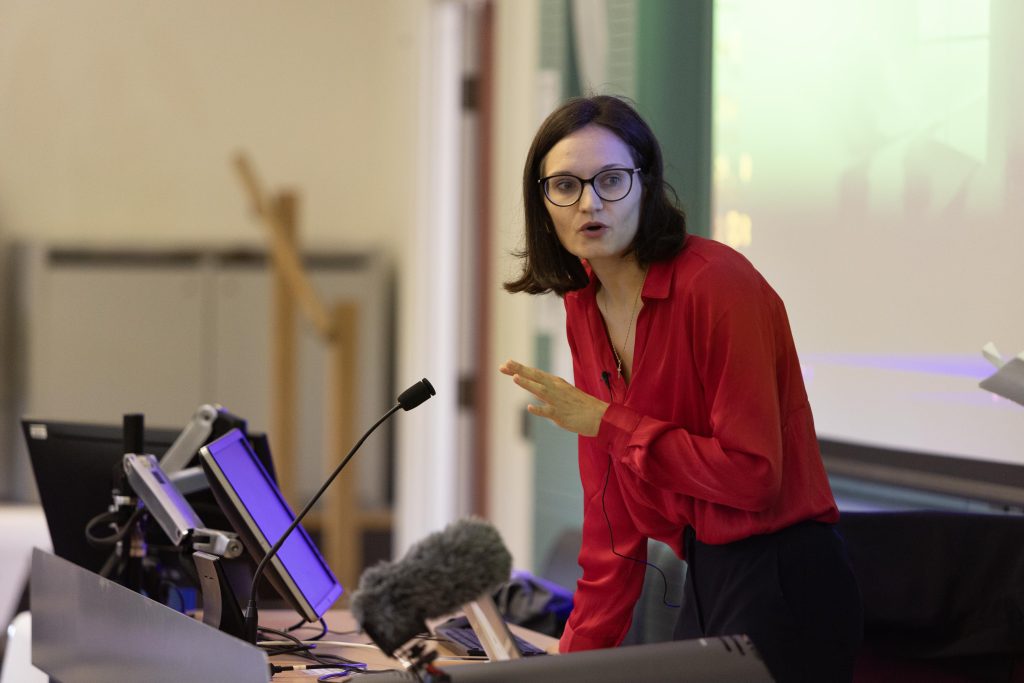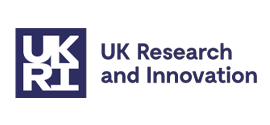
Decolonisation movements in the university have increasingly evidenced the need for revisiting research practices and norms to accommodate reflexive, participatory and genuinely collaborative research. Project dldl/ድልድል at SOAS was inspired by similar aims, introducing a novel, decolonially reflexive approach to researching and responding to domestic violence in East Africa and Europe. In this blog, Dr Romina Istratii reflects on the impact achieved by the project in its first four years, considers some of the ‘hard’ lessons learned and outlines future directions for promoting productive partnerships and impact-oriented research that also inform the work of the newly-established Institute of Domestic Violence, Religion & Migration.
Motivations and aims of Project dldl/ድልድል
Project dldl/ድልድል, which means bridge in Tigrigna, is an impact-oriented project funded by UK Research and Innovation under the Future Leaders Fellowship scheme to promote and develop community-grounded, theology-informed and culturally appropriate responses to domestic violence in Ethiopia and the UK.
The project was established to apply robust, interdisciplinary, culturally informed evidence to the resolution of an urgent and global societal problem, domestic violence, in a manner that also promotes equitable collaboration and two-way knowledge exchange between Europe and Africa. Our approach is to co-create research and deliver culturally appropriate interventions with indigenous organisations, especially those in their early stages of development as a way of building local research and practice leadership, guided by their own understandings and experiences of domestic violence and impact priorities.
I designed this project after completing my PhD at SOAS, a year-long anthropological study in the countryside of Ethiopia to understand the role that religio-cultural factors played in domestic violence experiences and to identify appropriate responses within the people’s religious worldviews. I was also informed by a decolonial understanding of historical inequalities in the system governing research and development, and several disciplinary biases, including the marginalisation of religious knowledge in a highly secularised and development paradigm, and the deployment of what was often a reductionist gender-based violence sociological framework to theorise domestic violence cross-culturally without appropriate contextualisation on the ground.
In the first four years of the project’s lifetime, we have been guided by two major aims:
- Build evidence, develop research-informed interventions and strengthen local infrastructures in domestic violence research and response in collaboration with indigenous women’s organisations and religious institutions in East Africa.
- Feed this evidence and practical knowledge to the UK domestic violence sector so that the latter can cater effectively to migrant, ethnic minority communities in faith-sensitive and culturally appropriate ways.
Impact achieved

We have pursued these aims through three types of project activities – research, interventions and public education and knowledge exchange. Inter alia, we have:
- improved literacy among religious leaders and clergy to respond to domestic violence, training 155 clergy of the Ethiopian Orthodox Tewahedo Church in partnership with EOTC DICAC in Ethiopia,
- increased the evidence on domestic violence attitudes and responses in relation to faith and religio-cultural socialisation, by completing three different research projects in Ethiopia and the UK, including a study with men co-led with EMIRTA Research, Training and Development, and studies with ethnic minorities and service providers supported by community-based researchers,
- laid out the grounds for the ‘nucleation’ of a new field at the intersection of religious studies, domestic violence studies, psychology, anthropology and international development, by administering numerous interdisciplinary literature reviews and providing a convening space for an international community of practice comprised of researchers and practitioners,
- promoted public education and awareness-raising by making our research accessible through multilingual podcasts and films, including an award-nominated film on domestic violence and faith co-produced in Ethiopia and the UK available on YouTube,
- promoted knowledge exchange and mutual learning between Africa and Europe and other regions of the world, evident especially through the conversations and synergies emerging at our annual conferences in Ethiopia and the UK that brought religious, state and non-governmental organisations and service providers together, and
- supported the development of the domestic violence sectors in Ethiopia and the UK by directly investing in indigenous faith-based or non-governmental organisations and businesses in their early stages of development, including Fnot Psychosocial Counselling.
Deeper learning achieved
But what are some ‘hard’ meta-lessons that one can extract from this project – the deeper learning achieved? I have reflected on this question for some time, and I have arrived at the below:
- While it is important that researchers seek to embody a decolonial reflexivity and ethos in their work, as individuals with different positionalities vis-à-vis the communities we work in, we have different comparative advantages and limitations, which inform the kind of impact we can generate. Sometimes, we may need to opt out of a partnership or project if we anticipate that our positionality could become a liability for us or our partners.
- Partnerships take considerable effort to build, sustain and manage, and they do not always go as planned because people and organisations, and their priorities and conditions, evolve in unpredictable ways. While funders and institutions encourage collaborative projects, they currently still lack the knowledge management systems to learn from the challenges we face to build productive partnerships.
- While investing in new organisations, including NGOs and businesses, to provide them with the opportunity to build experience may be ideal, the likelihood that some partnerships will fail, fall apart or not produce results is higher when organisations are less experienced and less financially strong. It is important to normalise such ‘failure’ if we want academics to take risks and partners up with the ‘unusual suspect.’
- Structural asymmetries, including asymmetric distribution of research funding in the world, means that even when partners in the Global South are given financial independence with their shares of the budget, their conflicting priorities and the accumulation of project responsibility in the PI’s hands in the Global North means that collaboration may still feel inequitable or not as meaningful as it could be.
- We may commit to achieving continuity and sustainability in our projects, such as by securing follow up funding, but our partners may not always jump at the opportunity or may be engulfed in political conditions that make a collaboration with us undesirable or a prospective liability for them. This stresses the importance of strategically selecting partners who are resilient and can sustain project outcomes over time.
- Channelling evidence from African countries to Europe to respond to societal challenges and to promote two-way innovation is possible, but such impact can only be scaled out and up when there is collaboration also at state and policy level.
How can we take these lessons forward in the project?
The project has recently received renewal funding for three more years and has developed into the newly-established Institute on Domestic Violence, Religion & Migration that seeks to replicate the Project dldl/ድልድል Model and to scale up and out its impact. We aim to consider seriously and be guided by the ‘hard’ lessons mentioned above.
Inter alia, as an Institute we want to support select partners with building competitive funding bids to lead projects of their own interest. We also want to work with policy makers and government bodies in the UK and internationally to achieve more scalable impact. Lastly, we are keen to expand our partnerships, but this time engage organisations with experience that matches our own so that we can achieve more learning and more impactful and resilient collaborations.
Learning from an entrepreneurship mindset
Within academia, we encourage impact-oriented research, and often talk about high risk-high gain research and innovation projects, but we have reflected less on the practicalities and implications of operationalising this motto. Are we genuinely ready to support researchers when they take informed and reasonable high risks to generate impactful research and innovation outcomes, such as in contexts that are politically unstable? Do researchers feel that were something to go wrong or conditions to radically change they would be supported to navigate the difficulties? This requires some serious thinking on behalf of institutions and funders alike.
We currently still lack a matter-of-factly approach to partnerships, co-creation and collaborative research and innovation in academia, especially one that considers our times of complex crises. Perhaps we can achieve this by better integrating an entrepreneurship mindset in higher education, that sees trial and error and constant adaptation to changing societal conditions as a normal process to exploring productive co-creation, collaboration and innovation. Adopting such a mindset might help us to open up more about our unsuccessful attempts, unproductive partnerships or our projects’ unintended negative impacts, better serving the ultimate aim of promoting research integrity, ethical practices and meaningful co-production in our sector.
Recently, Dr Romina Istratii spoke to the Development Hub Podcast – The Power Shift: Decolonising Development about Project dldl/ድልድል and the project’s impact and lessons learned.
The episode can be watched below:
About the Author

Dr Romina Istratii is UKRI Future Leaders Fellow and Lecturer at the School of History, Religions and Philosophies at SOAS, co-chair of the SOAS Centre of World Christianity and honorary Research Associate to the Institute of Orthodox Christian Studies in Cambridge. For the past 13 years, she has worked in development-oriented research to promote epistemological reflexivity, ethical research practices and healthy partnerships and collaboration models. She previously initialised the Decolonising Research Initiative under the aegis of the SOAS Research Directorate and co-founded Decolonial Subversions. She is the author of the monograph Adapting Gender and Development to Local Religious Contexts: A Decolonial Approach to Domestic Violence in Ethiopia (Routledge, 2020). Dr Istratii is currently pursuing a Masters in Entrepreneurship at the Cambridge Judge Business School, University of Cambridge.
